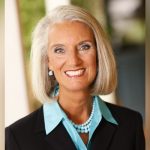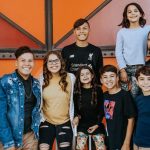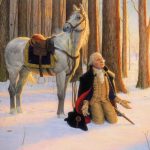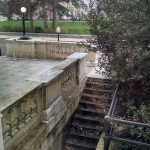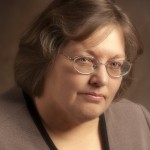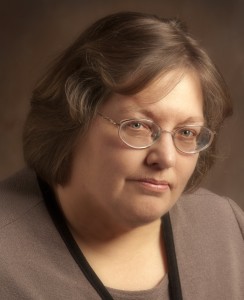
By Elizabeth Wagner
December 24, 2019 (LifeSiteNews) — This year, I paid closer attention to see which movies and shows settle for Christmassy window dressing, and which acknowledge the real point of the season. A Charlie Brown Christmas (1965) is famous, or infamous, for stating exactly what Christmas is all about. Linus Van Pelt tells a desperate Charlie Brown the “good tidings of great joy,” straight from the Gospel of Luke, that “unto you is born this day in the City of David a Savior, which is Christ the Lord.” Here are several specials, short films, and features that have the window dressing as well as the Savior, who is Christ the Lord.
Mr. Krueger’s Christmas (1980)
This thirty-minute Christmas special, starring Jimmy Stewart, carries a powerful message about friendship with Jesus. Stewart’s character, a poor widower named Mr. Krueger, prepares for a solitary Christmas with his cat George (I see what they did there). Mr. Krueger is lonely but not discouraged. He enlivens his Christmas Eve activities with a colorful imagination. Eventually, when he kneels in prayer before his Nativity scene, he finds himself kneeling before a living Baby Jesus in the manger, surrounded by Joseph and Mary, the wise men, and the shepherds. Mr. Krueger pours out his heart to Baby Jesus in a speech that builds to these emotional words: “I love you. You’re my closest, my finest friend. And that means I can hold my head high wherever I go. Thank you. Thank you.”
The film’s director, Kieth Merrill, said that on the day they were to film this scene, Jimmy Stewart pulled him aside and said, “I need to do this in one take.” When Merrill tried to explain that multiple takes would be needed, Stewart clarified, “For me this scene and these words are very personal and very real and I will not be able to do it twice.”
The Little Drummer Boy (1968)
This one is a tear-jerker. This special from Rankin/Bass Productions is narrated by Greer Garson, with some of her lines taken directly from the Gospels. It features the Vienna Boys Choir singing the title song. The other songs are not particularly memorable, and the stop-motion animation is ungainly, but when the Little Drummer Boy meets Baby Jesus, have your tissues ready!
Romeo Muller, the writer, said The Little Drummer Boy was his favorite of the more than a dozen Christmas specials he wrote for Rankin/Bass (which include the best known favorites Rudolph the Red-Nosed Reindeer, Santa Claus Is Comin’ to Town, and Frosty the Snowman). He wrote the script in one day to meet a deadline and produced a simple, moving story about how an encounter with the Savior can change a life.
Martin the Cobbler (1977)
This is a claymation short film by Will Vinton, based on Leo Tolstoy’s short story “Where Love Is, God Is.” The title of Tolstoy’s story, incidentally, comes from the Catholic hymn Ubi Caritas. In Martin the Cobbler, the emotion conveyed by the clay animation is subtle and moving. After the loss of his wife and child, Martin lives only for his work. One day, the Lord tells him in a dream that He will visit Martin that day. Soon Martin learns what Christ means when He says, “As long as you did it to one of these my least brethren, you did it to me.”
The Andy Williams Christmas Show (1966)
This is one of many Andy Williams Christmas specials, which are great fun. They are unashamedly cheesy, full of jokes and playfulness, complex sets and costumes, moments of spontaneity because of the live audience, and even reverence.
In the 1966 special, we see Andy interacting with his parents, siblings, wife, and children; we hear the sibling harmonies of the Williams Brothers and the Osmond Brothers. After a series of secular Christmas favorites, including “It’s the Most Wonderful Time of the Year,” which was written for Andy’s Christmas shows, we are invited to Andy’s family gathering. Andy holds his baby son and sings “Mary’s Boy Child,” the chorus of which is “Hark now hear the angels sing / A new King’s born today / And man will live forevermore / Because of Christmas day.”
Andy was known for including reverent performances of traditional songs in his shows, such as “Ave Maria” and “O Holy Night.” The 1966 show closes with Andy singing “Silent Night” in front of stained glass windows.
READ MORE – https://www.lifesitenews.com/news/5-and-a-half-classic-movies-that-keep-christ-in-christmas
